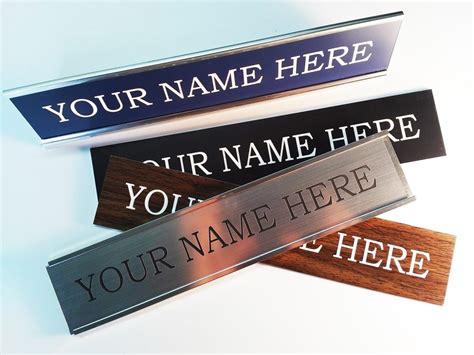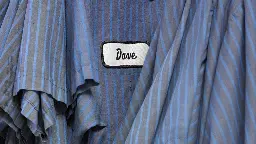
Name It
- How Do You Say Your Name? Difficult-to-Pronounce Names and Labor Market Outcomesbeehaw.org How Do You Say Your Name? Difficult-to-Pronounce Names and Labor Market Outcomes - Beehaw
> We test for labor market discrimination based on an understudied characteristic: name fluency. Analysis of recent economics PhD job candidates indicates that name difficulty is negatively related to the probability of landing an academic or tenure-track position and research productivity of initia...
- Folks, meet The Maker. If you find the name godly, know that he is infact godly

Any name y'all think might be better?
- The name "John" has equivalents in more than 100 different languages (and plenty even in English)feddit.uk The name "John" has equivalents in more than 100 different languages (and plenty even in English) - Feddit UK
It started with Yochanan (Hebrew) -> Ioannis (Greek) -> Johannes (Mediaeval Latin) -> Jon (Middle English), but now every language seems to have a version, e.g. * Hans * Joanna * Hanna * Jan * Ivan/Ivanka * Vanja * Jens * Sean/Shaun/Shawn/Shane * Joan/Jane/Jean/Janis * Evan/Ewan * Jock/Jack * Ian/Ia...

- The Evolution of Naming Thingsmedium.com The Evolution of Naming Things
How did we go from grunting and pointing to having complex systems of names and language? The evolution of how humans name people, places…

- What's your automatic vacuum's name?

cross-posted from: https://lemmy.world/post/9969406
> I saw a couple of fun ones somewhere else, and it got me interested. My mom calls her's: Mr de Vries > > other's i found: > > - William the Sucker > - Kirby & Yoshi > - Ragnar > - Sir Suckalot > - Wool-E
- Etymology of Name.www.etymonline.com name | Etymology, origin and meaning of name by etymonline
NAME Meaning: "word by which a person or thing is denoted," Old English nama, noma "name, reputation," from… See origin and meaning of name.

name (n.) "word by which a person or thing is denoted," Old English nama, noma "name, reputation," from Proto-Germanic *naman- (source also of Old Saxon namo, Old Frisian nama, Old High German namo, German Name, Middle Dutch name, Dutch naam, Old Norse nafn, Gothic namo "name"), from PIE root *no-men- "name."
Meaning "a famous person" is from 1610s (man of name "man of distinction" is from c. 1400). Meaning "one's reputation, that which is commonly said of a person" is from c. 1300. As a modifier meaning "well-known," it is attested by 1938.
In the name of "in behalf of, by authority of," used in invocations, etc., is by late 14c. Name-day "the day sacred to the saint whose name a person bears" is by 1721. Name brand "product made by a well-known company" is from 1944. Name-dropper "person who seeks to impress others by mentioning well-known persons in a familiar way" is by 1947. Name-child, one named out of regard for another, is attested by 1830. The name of the game "the essential thing or quality" is from 1966; to have one's name in lights "be a famous performer" is by 1908.
"I don't realize yet how fortunate I am. It seems that I have been dreaming. When I see my name in lights in front of the theatre, I think, 'No. It isn't I.' " [Billie Burke interview in "The Theatre Magazine," Nov. 1908]
name (v.)
Old English namian "to bestow a particular name upon, call, mention by name; nominate, appoint," from Proto-Germanic *nōmōjanan (source also of Old Saxon namon, Old Frisian nomia "to name, call," Middle Dutch noemen, namen), from the source of name (n.).
- Culture Starship spotter thread
You know The Culture novels by Iain M Banks, right? How it has sentient starships that choose ironic names for themselves like these;
- Sanctioned Parts List
- So Much For Subtlety
- All Through With This Niceness And Negotiation Stuff
- Attitude Adjuster
- Of Course I Still Love You
- Funny, It Worked Last Time...
Well, if you pay attention, you can notice starships hiding in plain sight all around you. Here's a few from recent years;
- Alternative Facts
- Sigma Grindset
- The Woke Mind Virus Is Either Defeated Or Nothing Else Matters
- Girlboss
- Basket Of Deplorables
- Are We The Baddies?
- I Am Not A Robot (Click To Confirm)
In this thread I want to know; what starship names have you spotted in the wild?
- The importance of a namewww.washingtonpost.com The importance of a name
A teacher discusses why some students say they don't care when an adult mispronounces their names -- but why it matters.

The importance of a name
By Valerie Strauss September 19, 2014
Here is a post by a Colorado teacher about what seems to be a simple observation about some students — that they don’t correct adults who mispronounce their names — but is really a nuanced look into the psyche of some students of color who live in poverty. This public school teacher blogs anonymously under the name Shakespeare’s Sister at Daily Kos, where this appeared. She teaches 11th grade AP Language and Composition in the Denver area.
By Shakespeare’s Sister
At the beginning of every school year, I try to learn all of my 11th graders’ names by the end of our first week together. A thing happens every year, though, when I am verifying pronunciations of student names.
This year, it happened with two male students whose names have two possible pronunciations. When I asked them for the correct pronunciation, they both responded, “Whatever is fine.”
When it happens, as it does every year, I look up from my roster, make eye contact, and say, “No, it’s not. It’s your name. Tell me how to say it.”
Every year but this year, I have glossed over this moment and just chalked it up to the nervousness of students new to my classroom. I am direct; sometimes, this intimidates my students until they get used to it. This year, though, in the wake of—most recently—Michael Brown and the fact that I am using the widespread coverage and discussion of his death to introduce the concept of rhetoric to my students, I paused.
My students have always been mostly brown and black. I can count the number of white students I’ve had using fingers and toes (and I still have some digits left over). My students live in poverty, and are underserved, underrepresented, disenfranchised…
But they do have their names.
As I pondered this on the way to work one morning, I remembered John Proctor in Arthur Miller’s “The Crucible.” Specifically, I remembered the absolute anguish of Daniel Day Lewis’s John Proctor from the movie version. Much is made, in literature classes, about Proctor’s refusal to allow Danforth and Parris to visibly show his name to the village as proof that he confessed.
Why do we crazy English teachers make such a big deal of it? Because it is an act of defiance, and perhaps pride, but at the same time a last grasp at moral fortitude, which ultimately costs John Proctor his life. The specific line that played on repeat in my head was:
PROCTOR: Because it is my name! Because I cannot have another in my life. Because I am not worth the dust on the feet of them that hang! How may I live without my name? I have given you my soul, leave me my name! The connection may be a stretch for some to understand, but having spent my entire teaching career working to educate and empower students who refer to themselves as “ghetto,” “beaners,” “hoodrats,” or “wetbacks,” it resonates.
My students take a lot of pride in their families, their churches, and also their names. Many of them are named for other members of family. What I hate is that they can be so timid about correcting adults who mispronounce their names. Never, before this year, had I thought about the learned behavior that causes this.
Maybe it’s a cultural thing and they don’t want to correct a teacher? Maybe it’s embarrassment that I pronounced it so poorly? Maybe they’re just that scared of me already? Maybe I’m overthinking it and they’ve just had their name mispronounced so much they don’t care anymore?
However, as I explored more and more sources about Mike Brown and Ferguson to use in my classroom, I began to develop a better understanding.
Maybe, it’s because of years of being treated like “the other,” from seeing, hearing, and learning from the experiences of people they know. From the experiences of people like them, they have learned to bow all too quickly to authority figures—even when it comes to how to properly pronounce a name…how to distinguish them from the other students around them.
Head down, don’t look. Hands up, don’t shoot.
But I want my students to look up. I want them to realize that there are many people who see them and value them for who they are, just like many people saw and valued Mike Brown. I want them to know that people respect them, their culture, and their individuality. To know that their teachers are not colorblind, but that we SEE them—for their cultures, for their abilities, for their strengths and weaknesses, for their contributions to humanity. Most importantly, I want my students to know that I respect them for the whole person they are, including their beautiful names that are sometimes difficult to pronounce.
- Our palm tree was named "Reginald" or short "Reggie", I actually don't remember why exactly

Like in "has Reggie got some water today?" or "when did Reggie last got some fertilizer?", he's the "bouncer" on the door to my wife's workshop & everybody loves him, even the squirrels from outside.
- Ethical Considerations in Naming
Names hold significant power. They are more than just identifiers; they carry cultural, social, and personal meanings. The act of naming people, places, or things carries ethical implications such as cultural appropriation, respect, and the consequences of labeling.
Examples:
- Imagine a non-Chinese individual choosing a Chinese-sounding name
- A teacher taking the time to learn and correctly pronounce each student's name.
- Media outlets using specific labels to describe a protest can influence public opinion. If a peaceful demonstration is labeled as a "riot" rather than a "protest," it can shape how the public perceives the event.
How do you see these ethical issues and can you think of any other? (Other than naming your kid adolf hitler)
- What is the most universal name?
cross-posted from: https://lemmy.dbzer0.com/post/3809882
> Ofc Mohammed is the most common name but thats a name common within the muslim community. I have noticed the name Sarah in every country, regardless of race or religion. Or it might be an abrahamic religion thing but thats most of the world atleast. > > I suspect other Abrahamic names might make the cut.
- What's in a Name?www.psychologytoday.com What's in a Name?
Did you know that you could get DENIED for what you’d like to name your kid?

What's in a Name?
Did you know that you could get DENIED for what you’d like to name your kid?
Posted November 15, 2011
The government of the relatively progressive country of New Zealand recently took a surprising step: controlling what officials considered deviant baby names by banning the use of appellations they have decided are problematic. Kiwis are no longer allowed to call their offspring by names that too closely resemble titles, such as Bishop, Baron, General, Judge, King, Mr., and Knight. Certain letters were also rejected, such as C, D, I, and T. Punctuation marks such as asterisks, commas, periods, and more were forbidden. They turned down three different sets of parents who wanted to name their child Lucifer. Perhaps New Zealanders became sensitive after catching international attention for allowing a couple to name their twins Benson and Hedges in 2008, or for permitting a couple of boys to be called Violence and Number 16 Bus Shelter.
It often is the case that governments react to specific actions that have drawn notoriety by outlawing them. Such reactive labeling has created a host of "odd laws" all around the world, including bans on getting a fish drunk in Ohio or catching them with your bare hands in Kansas, parachuting by unmarried women on Sunday in Florida, driving a vehicle blindfolded in Alabama, eating a lamb after having sex with it in Islamic countries, spitting into the wind in Nebraska, or threatening (let alone killing) a butterfly in California. And France has prohibited naming a pig Napoleon, which gets us back to the idea of deviance in names.
New Zealand is joined in its anti-naming laws by Sweden, oddly enough, another progressive society, which put the kibosh on Superman, Metallica, Elvis, and Brfxxccxxmnpcccclllmmnprxvclmnckssqlbb11116 (pronounced Albin) [what would the artist sometimes known as Prince say about that?], while approving Lego and Google. The Dominican Republic, has begun turning down names that are either confusing or gave no indication of gender, such as Qeurida Pina (Dear Pineapple) and Tonton Ruiz (Dummy Ruiz). Is this, perhaps, a new way that governments are asserting their power to curtail child abuse? Or, have they gone too far in limiting how people name their children, overstepping their boundaries into personal areas?
What is this trend all about? In America, people have a lot of names that might be considered deviant in these other countries. Unusual names are rampant throughout sport, with Stylez G. White, Macho
Harris, Peanut Joseph, Knowshon Moreno, and Selvish Capers having graced the field of football. Baseball has seen Razor Shines, Rusty Kuntz, and Creepy Crespi, along with Sterling Hitchcock, Champ Summers, and Van Lingle Mungo. A few of these odd names even seem like they belong together in pairs, such as Travis LaBoy and Coco LaBoy, Steven Friday and Jeff Saturday, and Antwaun Molden and Anquan Boldin.
Some names, illustrating the principle of "nominative determinism," carry parents' hopes and dreams for their children and may inspire them to follow specific pathways in life, such as Rutgers anthropologist Lionel Tiger, veterinarian and animal behaviorist Michael Fox, Manila archbishop Cardinal Sin, San Francisco dentist Les Plack, and New York attorney, Sue Yoo. Others seem to carry colloquial orientation, such as Symazme Fosho, whose parents, when asked about their child's name, simply pointed to its emphatic nature, as in, "That's her name, Fosho!" Popular among Symazme's cohort is the name Nevaeh, which is Heaven, spelled backwards.
Beckham's child Brooklyn, Ashlee Simpson's Bronx Mowgli, Gwynneth Paltrow's Apple, Jermaine Jackson's Jermajesty, Nicholas Cage's Moxie CrimeFighter, and Frank Zappa's offspring, Dweezil, Moon Unit, Ahmet, and Diva. Are these nominatively determinists? What happened to Sonny and Cher's daughter, Chastity, who turned into a son named Chaz?
Gender-ambiguous or unisex names, also known as" epicene names," have become much more common
(such as Pat, Ryan, Alex, Chris, Sam, with the most currently popular being Rory), despite being outlawed in Germany and other places. Denmark takes an even greater "Big Brother" stance, with a list of 7,000 approved names from which parents have to pick, and anything outside that list requires approval by both the Ministry of Ecclesiastical Affairs and the Ministry of Family and Consumer Affairs.
But what about gender-opposite names, where rather than being unclear, it suggests that the person is of the other gender? We had lunch with a friend, who brought along a buddy of his, a guy named Stacy. During the meal they got into an argument when our friend suggested that Stacy's mother must have hated him to give him that name. Stacy angrily defended his name, claiming it was masculine. In chatting with the waitress as she brought our bill, however, it came out that his middle name was the same as hers: Kimberly. That was too much; he ended up picking up the check after hearing our other friend howl again about how his mother must have hated him.
Name arguments are common. One young man we know named Whitney used to fight with his sister about who their parents liked better, with each claiming the other. In the end, he always won by bringing up his name. He reflected:
Throughout my entire life I have dealt with people's awkward reactions when they know they are meeting someone named Whitney and then realize only when I introduce myself that I am a man. This situation presents itself at work all the time - at an introductory meeting where someone is expecting to meet Whitney, only to see me walking up to them and offering my hand. Their faces are often confused. It also presents itself on the phone, for example when I call and a secretary for the person I am trying to reach needs to take a message. When I tell them who is calling, there is always the need for me to confirm that they heard me say my name right.
- Why Your Name Matters
The New Yorker
Why Your Name Matters By Maria Konnikova
December 19, 2013
In 1948, two professors at Harvard University published a study of thirty-three hundred men who had recently graduated, looking at whether their names had any bearing on their academic performance. The men with unusual names, the study found, were more likely to have flunked out or to have exhibited symptoms of psychological neurosis than those with more common names. The Mikes were doing just fine, but the Berriens were having trouble. A rare name, the professors surmised, had a negative psychological effect on its bearer.
Since then, researchers have continued to study the effects of names, and, in the decades after the 1948 study, these findings have been widely reproduced. Some recent research suggests that names can influence choice of profession, where we live, whom we marry, the grades we earn, the stocks we invest in, whether we’re accepted to a school or are hired for a particular job, and the quality of our work in a group setting. Our names can even determine whether we give money to disaster victims: if we share an initial with the name of a hurricane, according to one study, we are far more likely to donate to relief funds after it hits.
Much of the apparent influence of names on behavior has been attributed to what’s known as the implicit-egotism effect: we are generally drawn to the things and people that most resemble us. Because we value and identify with our own names, and initials, the logic goes, we prefer things that have something in common with them. For instance, if I’m choosing between two brands of cars, all things being equal, I’d prefer a Mazda or a Kia.
That view, however, may not withstand closer scrutiny. The psychologist Uri Simonsohn, from the University of Pennsylvania, has questioned many of the studies that purport to demonstrate the implicit-egotism effect, arguing that the findings are statistical flukes that arise from poor methodology. “It’s like a magician,” Simonsohn told me. “He shows you a trick, and you say, ‘I know it’s not real, but how did he pull it off?’ It’s all in the methodology.” A problem that he cites in some of these studies is an ignorance of base rates—the over-all frequency with which something, like a name, occurs in the population at large. It may be appealing to think that someone named Dan would prefer to be a doctor, but we have to ask whether there are so many doctor Dans simply because Dan is a common name, well-represented in many professions. If that’s the case, the implicit-egotism effect is no longer valid.
There are also researchers who have been more measured in their assessments of the link between name and life outcome. In 1984, the psychologist Debra Crisp and her colleagues found that though more common names were better liked, they had no impact on a person’s educational achievement. In 2012, the psychologists Hui Bai and Kathleen Briggs concluded that “the name initial is at best a very limited unconscious prime, if any.” While a person’s name may unconsciously influence his or her thinking, its effects on decision-making are limited. Follow-up studies have also questioned the link between names and longevity, career choice and success, geographic and marriage preferences, and academic achievement.
However, it may not be the case that name effects don’t exist; perhaps they just need to be reinterpreted. In 2004, the economists Marianne Bertrand and Sendhil Mullainathan created five thousand résumés in response to job ads posted in the classifieds in Chicago and Boston newspapers. Using Massachusetts birth certificates from between 1974 and 1979, Bertrand and Mullainathan determined which names appeared at a high frequency in one race but at a low frequency in another, creating groups of what they termed “white-sounding names” (like Emily Walsh and Greg Baker) and “black-sounding names” (like Lakisha Washington and Jamal Jones). They also created two types of candidates: a higher-quality group, with more experience and a more complete profile, and a lower-quality group, with some obvious gaps in employment or background. They sent two résumés from each qualification group to every employer, one with “black-sounding” name and the other with a “white-sounding” one (a total of four CVs per employer). They found that the “white-sounding” candidates received fifty per cent more callbacks, and that the advantage a résumé with a “white-sounding” name had over a résumé with a “black-sounding” name was roughly equivalent to eight more years of work experience. An average of one of every ten “white” résumés received a callback, versus one of every fifteen “black” résumés. Names, in other words, send signals about who we are and where we come from.
These findings have been demonstrated internationally as well. A Swedish study compared immigrants who had changed their Slavic, Asian, or African names, such as Kovacevic and Mohammed, to more Swedish-sounding, or neutral, ones, like Lindberg and Johnson. The economists Mahmood Arai and Peter Skogman Thoursie, from Stockholm University, found that this kind of name change substantially improved earnings: the immigrants with new names made an average of twenty-six per cent more than those who chose to keep their names.
The effects of name-signalling—what names say about ethnicity, religion, social sphere, and socioeconomic background—may begin long before someone enters the workforce. In a study of children in a Florida school district, conducted between 1994 and 2001, the economist David Figlio demonstrated that a child’s name influenced how he or she was treated by the teacher, and that differential treatment, in turn, translated to test scores. Figlio isolated the effects of the students’ names by comparing siblings—same background, different names. Children with names that were linked to low socioeconomic status or being black, as measured by the approach used by Bertrand and Mullainathan, were met with lower teacher expectations. Unsurprisingly, they then performed more poorly than their counterparts with non-black, higher-status names. Figlio found, for instance, that “a boy named ‘Damarcus’ is estimated to have 1.1 national percentile points lower math and reading scores than would his brother named ‘Dwayne,’ all else equal, and ‘Damarcus’ would in turn have three-quarters of a percentile ranking higher test scores than his brother named Da’Quan.’ ” Conversely, children with Asian-sounding names (also measured by birth-record frequency) were met with higher expectations, and were more frequently placed in gifted programs.
The economists Steven Levitt and Roland Fryer looked at trends in names given to black children in the United States from the nineteen-seventies to the early aughts. They discovered that names which sounded more distinctively “black” became, over time, ever more reliable signals of socioeconomic status. That status, in turn, affected a child’s subsequent life outcome, which meant that it was possible to see a correlation between names and outcomes, suggesting a name effect similar to what was observed in the 1948 Harvard study. But when Levitt and Fryer controlled for the child’s background, the name effect disappeared, strongly indicating that outcomes weren’t influenced by intrinsic qualities of the name itself. As Simonsohn notes, “Names tell us a lot about who you are.”
In the 1948 study, the majority of the uncommon names happened to be last names used as first names—a common practice among upper-class white families at the time. Those names, too, served as a signal, but in this case as one of privilege and entitlement—perhaps their unsuccessful bearers thought that they could get by without much work, or that they could expose neuroses that they would otherwise try to hide. We see a name, implicitly associate different characteristics with it, and use that association, however unknowingly, to make unrelated judgments about the competence and suitability of its bearer. The relevant question may not be “What’s in a name?” but, rather, “What signals does my name send—and what does it imply?”
- [Meta] Whoa, this community is within top 15 communities on this instance within hours of me creating it! This is the power of posting memes on a new community.

I hope this translates to more subscribers and users who post not only comment. Plus more varied content.






















